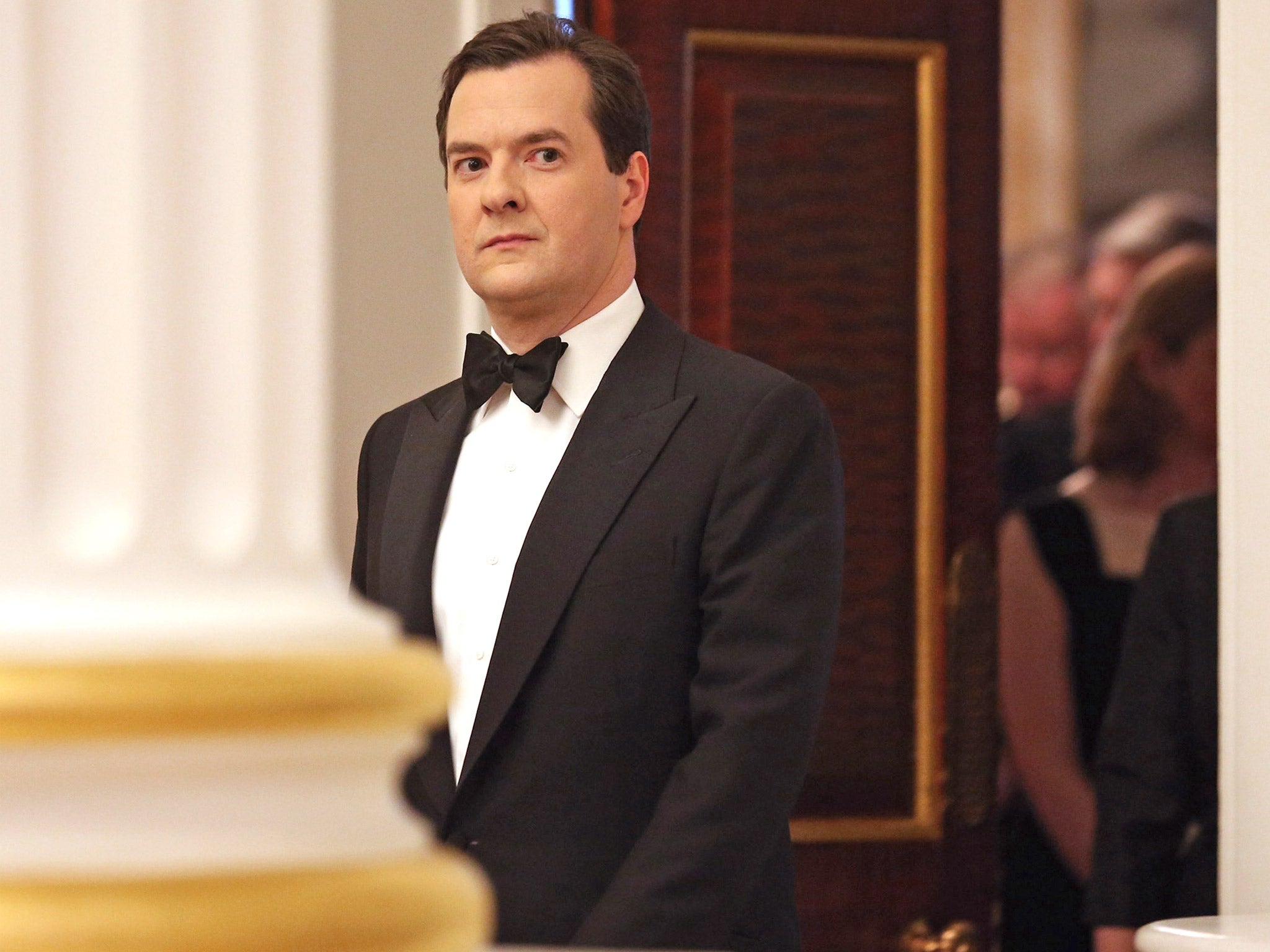Public will be offered shares in Lloyds Bank, says George Osborne
Chancellor says economic revival will enable bank to be returned to the private sector

Your support helps us to tell the story
From reproductive rights to climate change to Big Tech, The Independent is on the ground when the story is developing. Whether it's investigating the financials of Elon Musk's pro-Trump PAC or producing our latest documentary, 'The A Word', which shines a light on the American women fighting for reproductive rights, we know how important it is to parse out the facts from the messaging.
At such a critical moment in US history, we need reporters on the ground. Your donation allows us to keep sending journalists to speak to both sides of the story.
The Independent is trusted by Americans across the entire political spectrum. And unlike many other quality news outlets, we choose not to lock Americans out of our reporting and analysis with paywalls. We believe quality journalism should be available to everyone, paid for by those who can afford it.
Your support makes all the difference.The prospect of an eventual “tell Sid”-style sale of shares in Lloyds Bank was raised by George Osborne as he claimed Britain’s economy had emerged from “intensive care”.
The Chancellor argued that signs of economic revival enabled the Government to begin planning the return of Lloyds to the private sector.
In his annual Mansion House speech, he also announced ministers were considering breaking up RBS by hiving off its potentially toxic assets into a “bad bank”.
The Chancellor did not set a timetable for the sale of Lloyds, or the proposed price at which shares would be sold, but made clear it was being studied as a matter of urgency.
His comments signalled that Lloyds could be returned to full private ownership by the general election. However, he warned any sale of RBS, in which the taxpayer has an 81 per cent stake, was still some way off.
Mr Osborne said: “Nothing better signals Britain’s move from rescue to recovery than the fact we can start to plan for our exit from government share ownership of our biggest banks.”
The first tranche of shares in Lloyds are likely to be offered to institutional investors, followed by a possible sale to the general public. It could be modelled on the popular “tell Sid” sale of British Gas shares in the 1980s. Mr Os- borne said the Government was “actively considering” returning Lloyds to the private sector because of its healthy share price and growing levels of interest among investors.
“For the first block of Government shares, an institutional placement is likely to be the most effective way of managing risk and getting value.
“So five years on from the financial crisis, we can now take the first steps to returning Lloyds to the private sector where it belongs. And for later sales of shares, we will consider a retail offering to the general public.”
He stressed: “We will only proceed if we get value for the taxpayer and we have no pre-fixed timescale or method of disposal.”
The Chancellor said RBS remained “weighed down by too many poor assets – loans issued in the boom that have gone bad and may take a long time to improve”. He said the Treasury would urgently conduct a review, to be completed by the autumn, into whether to split it into a “good bank” and a “bad bank”, ultimately paving the way to a sale of shares.
“This would then enable RBS to focus on the good parts of its business, supporting the British economy and maximising the benefits for the taxpayer,” Mr Osborne said.
He suggested the worst of Britain’s economic woes could have passed, although he warned that the situation in the eurozone remained fragile and said recent volatility in the financial markets was a reminder that no recovery would be straightforward.
But the economic news had improved in recent months with economic growth, falling unemployment and increasing business confidence, he added.
Join our commenting forum
Join thought-provoking conversations, follow other Independent readers and see their replies
Comments